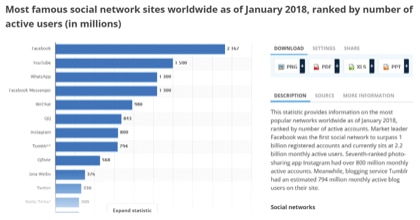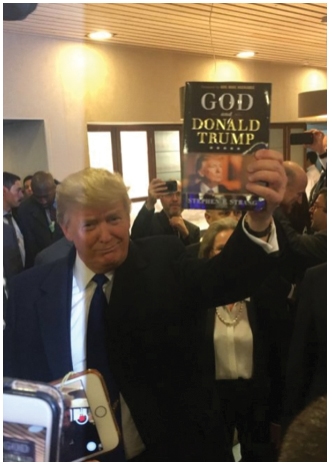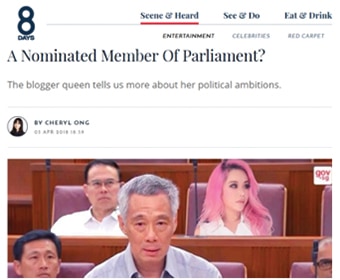The Question of Our Privacies: Facebook or Tencent?
It would have been just perfect, on hindsight, to have taken that Easter break in the past week, to go sweep the ancestral tombs and spend the rest of the time off-line instead of immersing ourselves in the unhealthy dose of media sludge and equally unhealthy market moves that have done no good for the spirits yet, so far, no one has gone on Facebook to complain.
Trade wars, on and off and even Trump’s government got confused when there was a potential of a trade war when the new economic advisor to Trump, Larry Kudlow said that tariffs are not a trade war. We even got conflicting signals from the new Fed chair and the new vice chair, with one claiming that growth is strong and the other going that the trade wars are keeping him up at night.
At least China is clear in their stance on banning those fruits and soybeans giving Singaporeans cheer as they eagerly await those California fruits to line NTUC’s aisles this summer.
What Trade War and what Trade Deficit?
Nobody asked America to buy so much stuff in the first place until some really smart people like Harvard professor, Ricardo Hausmann, pointed out that those deficit numbers are not what they seem, if we take into account the services surplus and “extraordinary value created by the international activities of Amazon, Apple, Facebook, Google, Hollywood and Uber, which are poorly captured as exports of either goods or services”, a.k.a. the Dark Matter of Trade.
Politicians do not have the intellectual luxury of questioning those economic numbers as much as they find it easier to blast easier subjects like “fake news” and now we have Korea jumping on the WTO complaint wagon against the US while Japan is considering siding with Trump.
If the Trade Deficit is “fake” news/data and a Trade War breaks out, what is real?
How about Friday’s U.S. job numbers? It is just a survey polled among hiring managers. Those inflation numbers? Those vary from country to country and we know that Onions play a big part in India as Sugar plays a relatively bigger role in Thailand than Singapore.
Just in time to challenge our sense of reality on what is real or fake, we have the sudden global panic attack on the invasion of our privacies as Donald Trump’s claims of Facebook election manipulation come true.
The Question of Privacy
With Amazon, Facebook and gang in the crosshairs of politics, we wonder if it is important that our privacy has been all but invaded, as if we did not know the minute we first logged on the web, made our comment on a forum, our first blog post or our first Redmart purchase?
Yes, the birthdate, address, credit card numbers, mother’s maiden name, thumbprint, face print, voice print and all, are all floating out there for the picking of any good hacker.
As if it is really even important at all because at the rate China is going, it would be illegal not to own a smartphone when they create a Social Credit System by 2020, which is designed to value and engineer more trustworthy individual behaviour.
This is made possible by blocking more than 6 million websites over the years and more recently, on the 31st of March, a blanket ban on all non-state sanctioned virtual private networks (VPNs) and further enforced on the streets with the police force’s facial recognition sunglasses program, that is able to not just to catch suspects but also recognise journalists, political dissidents, human rights activists and more.
For the sake of Americans, the US Department of Homeland Security will compile a global database of journalists and bloggers to monitor more than 290,000 news sources in more than 100 languages, according to Bloomberg.
Why bother to #Delete Facebook when it is the least of our problems because nothing you say or have said online is private and pretty much up for grabs.
It suits us just fine because we do not mind those “Social Brownie Points” for our patriotism and community service in financial perspectives because we have always known and accepted that we have no privacy and to borrow from Elon Musk, our existence could be deleted like spam, to say bye to your online accounts and identity.
The Good Guys and the Bad Guys
It is imperative to differentiate between the good guys and the bad guys in the privacy debate.
The good guys are those in positions of authority, whom we place our trust to protect us and thus it is alright for them to know where we are when we use the parking app, and what we are eating when we use Paylah.
The bad guys are the hackers who seek our identities and information to use against us and the dangerous guys are those Cambridge Analytica, Aggregate IQ etc., to target our minds in ways that the government would not approve of, although it is ok if it was for positive social influencing purposes, like creating awareness of the Singapore Budget and the problems of diabetes, gambling and such.
Thus it is in our interest that “fake news” be wiped out because we would only want official and authorised news.
This brings up the matter of policing the whole system, pretty much like compliance officers are now considered the most important people around, not just in banks anymore, but across industries to ensure that best practices are maintained just like the policemen with the facial recognition goggles.
With the free reign and power they exert, we wonder who would police them?
Like the rule of martial law in the Philippines against the little drug peddlers, the police have been given the right to kill, without so much need for evidence, the influence and power of compliance teams appear to be going unchecked, as we heard the sob story of a friend who was personally targeted by the compliance officer at her workplace. Well, that is bullying at a new level, we suppose, which cannot be helped and could happen anywhere.
So much for the good guys and the bad guys, our heads are buckling under the weight of fake news, fake data and privacy attacks but would we buy Tencent or Facebook?
Tencent or Facebook?
2018 has been the year governments and the public woke up to acknowledge the might of social network and rue the idea of the power they hold, subliminal sometimes, over our thoughts and actions.
That a US election and Brexit and all were subtly swayed is taking some time to sink in, especially for Singaporeans who are used to their direct and straight talking leaders, even for those who do not read the news much, like us, to care that Singapore’s top blogger is vying for a Nominated MP spot on the same day the Education Minister declared the need for diversity in the government.
It looks like social media influencing is a subject matter that will not be shaken off in the days and months ahead and we can be sure that Facebook will be under attack by the governments of the world for their potential “Big Brother”/”Thought Police” powers.
With their over 2 billion users (which includes our dead friend’s deceased mom whose account cannot be accessed and thus, deleted), it is no wonder Nomura predicts that The Big Tech Revolt Has Begun and analysts rush to downgrade Facebook. 
Source: Statistica
On the other side of the spectrum, China’s Social Credit System cannot be achieved without state-sanctioned social media platforms and WeChat and QQ, both Chinese sites that rank high up on the popular list, can only expect to keep growing from strength to strength as long as they cooperate with the state.
 Source: Bloomberg
Source: Bloomberg
We can even expect that it may become compulsory for citizens to have a social media account in China sometime in the future and perhaps have them dutifully post pictures of their happy lives to get “credits”. This is an idea we took off Dark Mirror’s Nosedive, a strangely prescient episode set in a society obsessed with one’s social ratings!!
Wouldn’t we root for Tencent?
As the same time, we would be rooting for the big data companies out there that would be going for the US contracts and all the other countless government contracts to get those databases of reporters and bloggers.
Not to mention those blockchain companies that will revolutionise the markets and stamp out money laundering, insider trading and all things illegal.
1984, Brave New World or 2018?
There has been much written and some written quite well about the global state of affairs, about the Big Brother NSA and the “Thought Police” concept of censuring and censoring the media.
Some see the situation akin to a hybrid of Aldous Huxley’s Brave New World Utopia and George Orwell’s Dystopia in the best-selling 1984, although millions of Americans still believe God Made Trump their President, also on the best-seller list.
 President Trump in Davos; Source: Politico
President Trump in Davos; Source: Politico
For us, there is precious little time to waste on worrying about the loss of privacy and the inevitability of further losses of our privacy (come on, the US will be keeping tabs on this post too) and whether we should #Delete Facebook or not because our lives will be completely changed without it.
We would be reverting to life 10 years ago and some of our younger friends have never seen a pager in their entire lives as we remain one of the few people with an analogue home telephone line.
The truth of the matter is, it does not matter because the people lived in 1984, the Brave New World or 2018, are not the same as the people who read about it.



